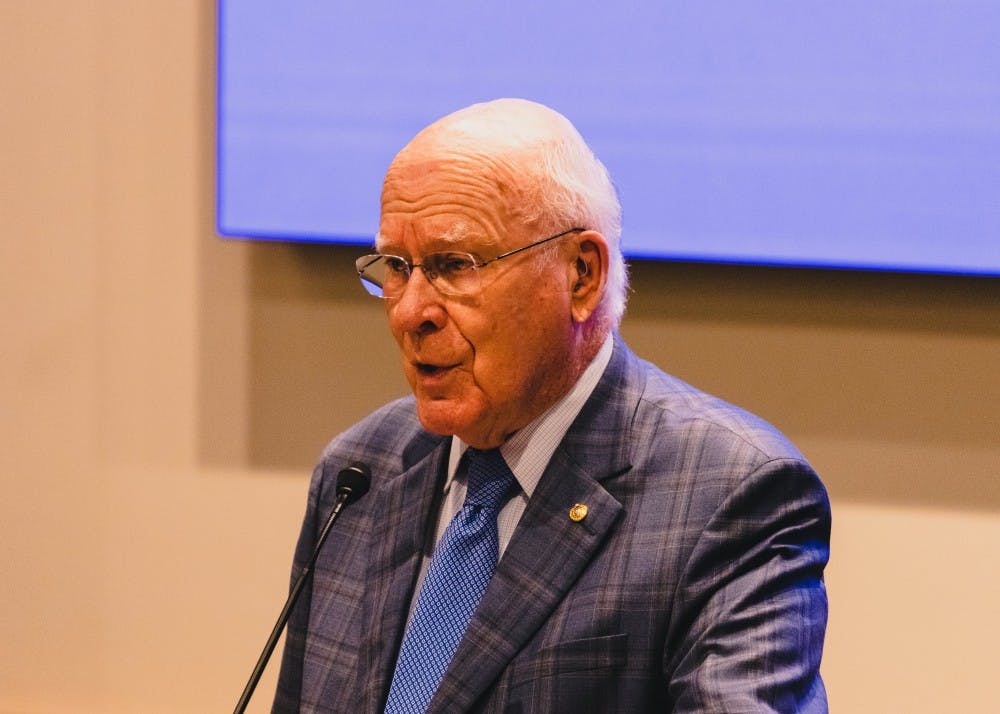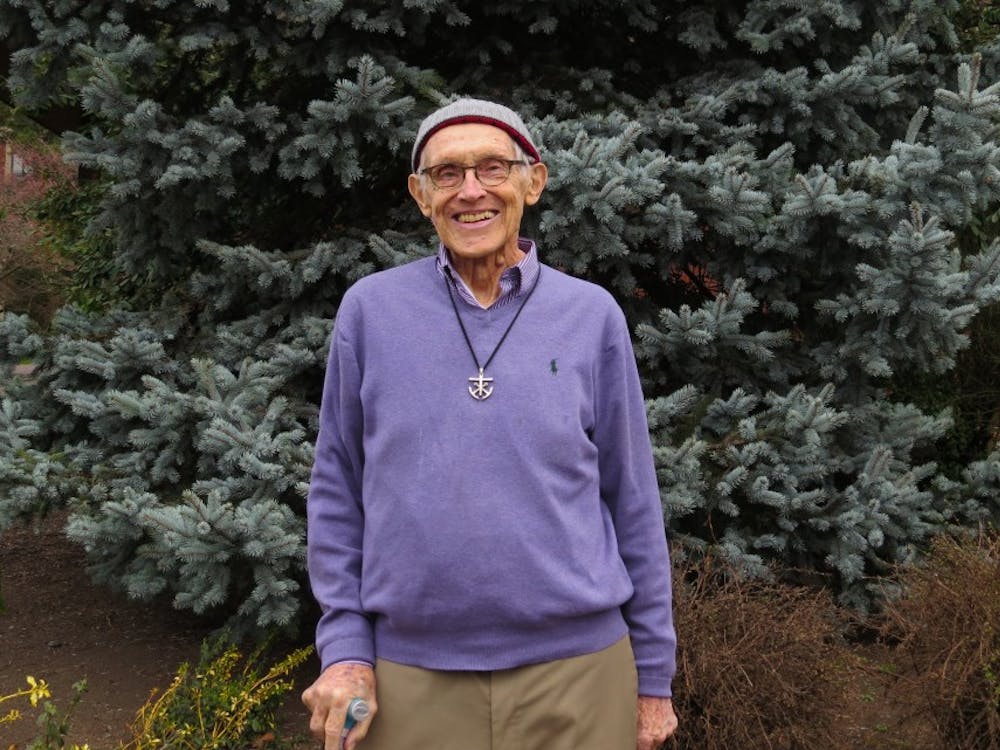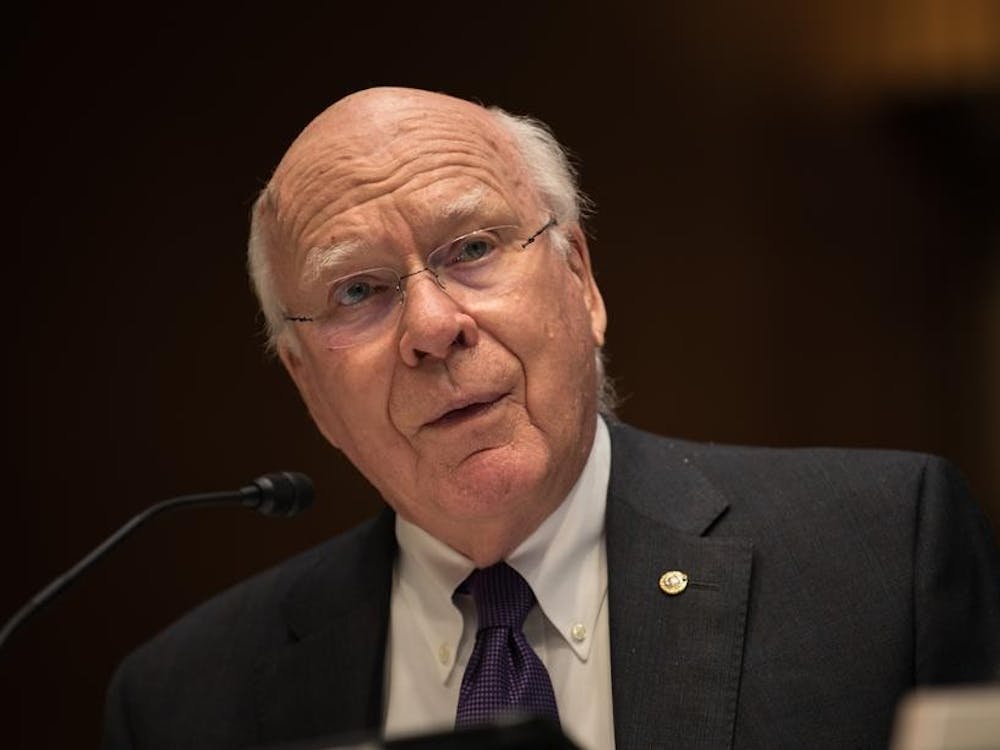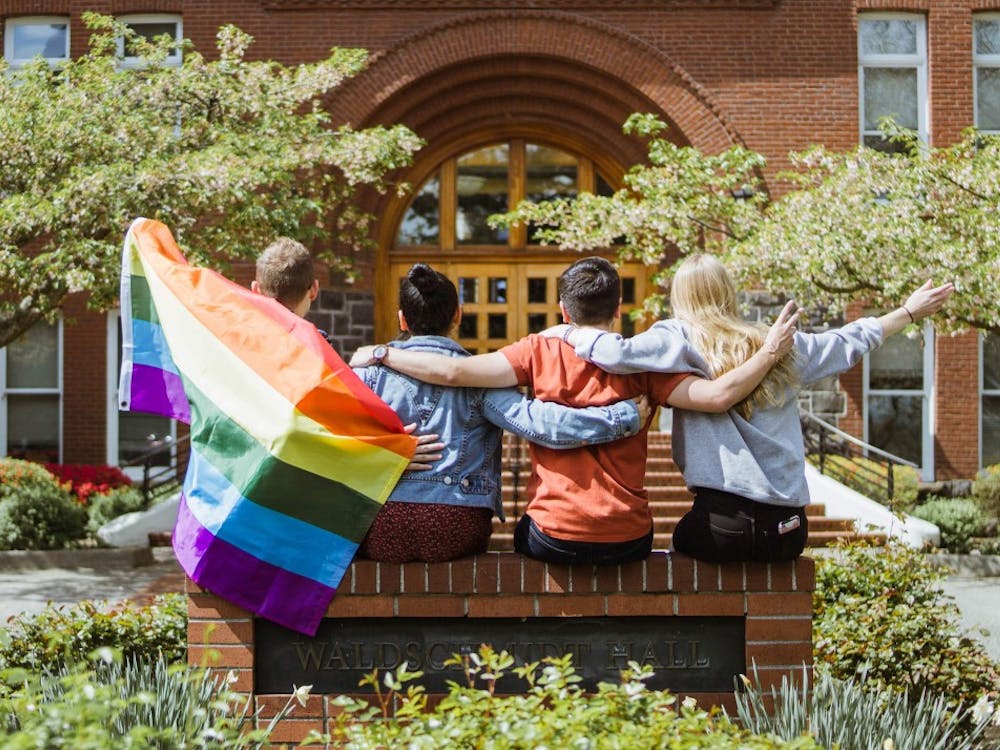Every seat in the new 146-person Brian J. Doyle Auditorium was filled to hear U.S. Sen. Patrick Leahy (D-Vermont) speak Thursday morning. Leahy and his wife Marcelle came to campus for the memorial mass of her brother, Fr. Claude Pomerleau, a former UP professor of Political Science, who died July 21 from cancer.
The Senator began by sharing memories of his brother-in-law. As Leahy talked, the audience moved from laughter to silence in remembrance of Pomerleau.
“I’ve introduced many visiting chaplains (to the U.S. Senate),” Leahy said. “The one who was most exciting and most meaningful, was Claude. The second, was the Dalai Lama.”
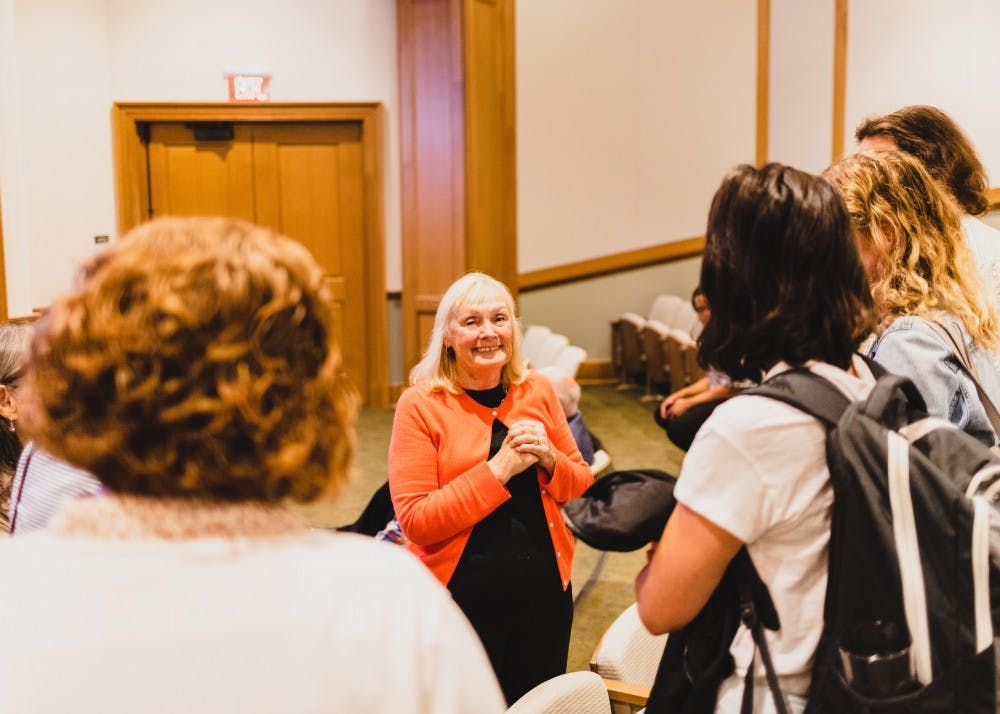
Marcelle Pomerleau speaks with students about her brother, Fr. Claude Pomerleau, after the lecture.
Several of Pomerleau’s past students were in the crowd, and took the opportunity, alongside faculty, staff and other students, to ask Leahy questions about his political stances and experiences.
Leahy was first elected in 1974, making him the longest serving senator in office. According to his website, “Leahy is the Vice Chair of the Senate Appropriations Committee…, the senior-most member of the Senate Judiciary Committee and of the Senate Agriculture Committee…(and) the Ranking Member of the Appropriations Subcommittee on State Department, Foreign Operations and Related Programs.”
Electoral College
Leahy said his stance on the electoral college has evolved over his decades in the Senate. He now believes that the electoral college should be abolished in favor of popular elections, following questions raised by the victories of former President George W. Bush in 2000 and President Donald Trump in 2016, both of whom lost the popular vote.

Bill Curtis, chair of the political science department, asks Sen. Leahy if he believes the electoral college should be abolished.
“It was one thing when it was in an era when we would go by stage coach or train,” Leahy said. “We’re at the point where I just think it should be popular elections, because you’re still going to be protected in congress.”
Gun Violence
Leahy said he was in favor of stricter gun control regulations, both in Vermont and nationwide, but doubts a vote will go forward because Senate Majority Leader, Mitch McConnell has refused to introduce legislation without the backing of President Trump. The President, following a phone call with NRA chief executive Wayne LaPierre, has decided to not pursue legislation targeting guns.
“I don’t see any need for people to have weapons we would normally see on the battlefield in your home, or your car or your school,” Leahy said. “During deer season (in Vermont) we put a limit on the number of rounds you can have in an automatic weapon, to give the deer a chance. I’d like to do the same limit to give children in a school a chance.”
Politicization of Courts
Leahy was part of the Senate Judiciary committee who questioned Supreme Court Justice Brett Kavanaugh about sexual assault allegations made by Christine Blasey Ford in September, 2018.
“If you’re going to be up for an appellate court, or Supreme Court, you should tell the truth...” Leahy said. “I don’t think (Kavanaugh) told the truth, I thought he did not. I don’t say that in a partisan way. I thought (Ford) did tell the truth, and it was not one of the finest hours of the Senate.”
Leahy said partisanship is damaging to the country, especially when it comes to courts. After the appointment of Kavanaugh along with McConnell blocking a vote to appoint Justice Merrick Garland to the Supreme Court, Leahy fears for those who must worry about the political preferences of judges who should be impartial.
“I’ve tried a lot of cases, both in state court and federal court,” Leahy said. “I’ve never had to ask myself, ‘Is this judge a republican or a democrat’...Now people are thinking ‘I’m not going to that court, because the judge was nominated by a democrat, or because the judge was nominated by a republican.’”
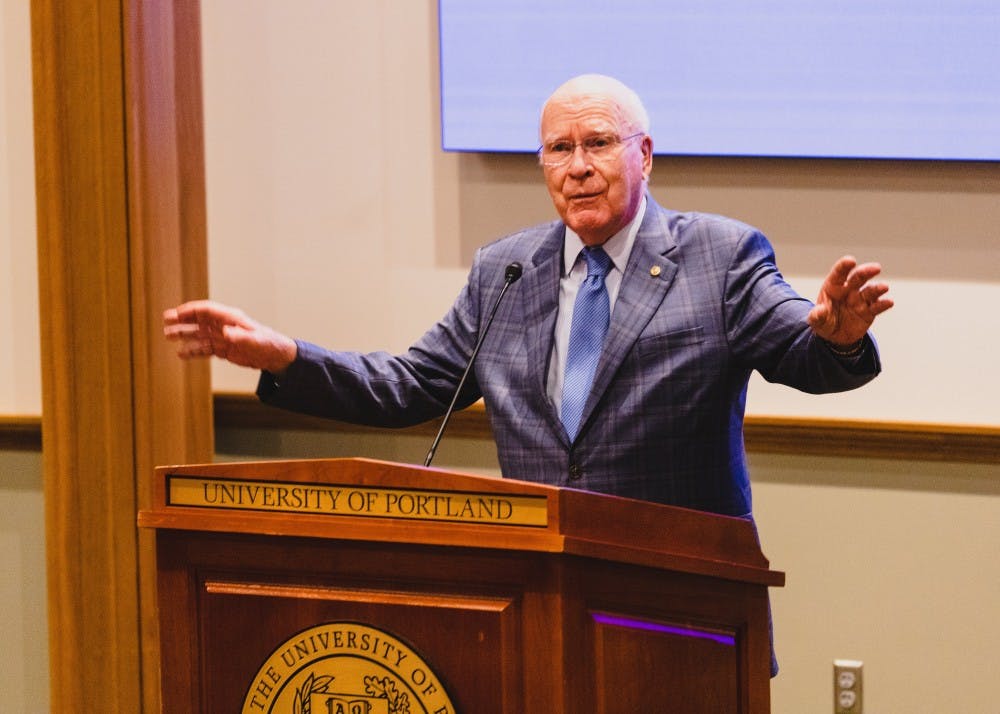
Sen. Leahy cracks a joke to the audience and gestures with his hands to drive the punchline home.
Partisanship and “Sloganeering”
Leahy condemned the polarization of U.S. politics several times throughout his speech. He called single issue groups, and their adherence to slogans over ideas, on the far right or far left as “the greatest danger we face today.”
“We can all support #BlackLivesMatter, because we do,” Leahy said. “But I’d ask how many are willing to go beyond the t-shirts, and bumper stickers, and banners and do the kind of heavy work that’s necessary to make sure that voting rights are restored in places like Alabama.”
Leahy expects legislators to “vote for their country, not for their party” like when he worked with Sen. Mike Crapo (R-Idaho) to expand the violence against women act in 2013. During late sessions, Leahy said he likes to invite Republican and Democratic senators to join him on his office balcony, without staff or press, for prayer hour and cocktails, which he referred to as “holy water.”
“It’s amazing when you don’t have the glare, you don’t have to pose for the TV cameras,” Leahy said. “So many times, we’ve gotten good bipartisan things done. The way it was when I first came (to the Senate), I hope it will come back to.”
Advice to Students
In 2016, only 61.4% of the eligible voting population in the U.S. filled out a ballot.
“People have fought revolutions, fought wars, people have been jailed, summarily executed for trying to have the right to vote,” Leahy said. “Their families were destroyed because they tried to have the right to vote. We have the right to vote. Those countries look at us and say, how can you not vote?”

Students turn around to listen to the question directed at Sen. Leahy.
Leahy encouraged student passionate about politics to find a candidate or organization who they believe in and work for them. He explained that nobody is perfect, but it’s important to listen to their stances and make informed decisions beyond slogans and signs.
“Don’t throw away your vote,” Leahy said. “Don’t fail to vote. Don’t say, ‘well one of these two people is going to win, but I like this third, or fourth, or fifth party candidate so I’m just gonna vote for them.’ Because that tends to give you the worst of all possible alternatives.”
Sam Cushing is a reporter for The Beacon. He can be reached at cushing20@up.edu.



